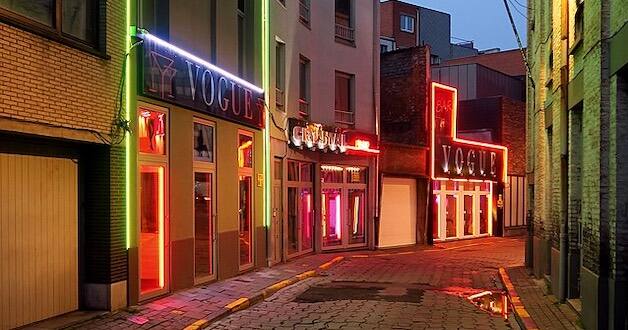Near one of the world’s largest red-light districts in Antwerp, Belgium, the Oasis Center offers a message of hope and redemption.
The Oasis Center is a physical hub of Breaking Chains Network, a human trafficking-prevention ministry founded in 2007 by April and Jerry Foster. It also is associated with the Europe Network of Project Rescue, which works to restore survivors of sexual slavery through prevention, intervention and restoration. The Oasis Center serves as a coffee shop during the day and a ministry center in the evening where women gather for meals, Bible studies and community.
The Fosters’ educational backgrounds have given them the skills to lead Breaking Chains — Jerry with a bachelor’s degree in business administration, and April with a bachelor’s in human services and master’s in international community development. They both are ordained Assembly of God ministers.
The idea of Breaking Chains began after God placed a stirring in the Fosters’ hearts toward trafficking. They soon discovered that Belgium is a major trafficking destination for women from Eastern Europe, Africa and many other regions.
“They’re just like any of us, our own daughters, sisters,” April said. “They’re trying to find their way, and so they’ve fallen into this exploitative situation and then it’s hard to get out.”
Through Breaking Chains and the Oasis Cetner, the Fosters and their dedicated team on the ground provide practical help to educate, encourage and equip women to achieve freedom. Breaking Chains has connected women with counseling, taught them professional life skills, sponsored them for further education, assisted with housing and even bought them airplane tickets home. “It’s a matter of supporting them and encouraging them where they’re at until they can leave,” she said.
An important aspect of Breaking Chains is its prevention program. After working in Belgium for some time, the Fosters saw a consistency in many cases: women from rural communities falling victim to a false promise of a better, big-city life, then being forced into prostitution.
“After a while, we asked, ‘What can we do to prevent them from being trafficked here?’” April said. “And that is to go to the source countries and start an awareness and a prevention program.”
God has opened doors and created opportunities to share this prevention program globally. The Fosters have presented the program in town halls, high schools and on television interviews, especially across Eastern Europe. It has been adapted for youth camps and has made its way into Russia to reach young people. Fida, a Finnish aid society, used it in an awareness campaign that reached 32 countries.
–Alan Goforth | Metro Voice
Photo cropped for story.
Creative Commons Attribution-Share Alike 4.0
